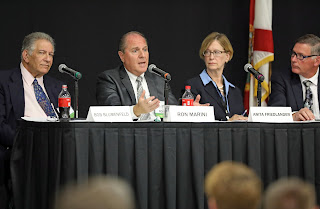The appeals court, in a 2-1 ruling, said the New Jersey federal court didn’t abuse its discretion by excluding evidence that David Evdokimow eventually paid his outstanding tax debt. Allowing the government’s comments on that subject in its closing argument similarly didn’t constitute an abuse of discretion, the opinion said.
Evdokimow had argued the comments implied to the jury that his tax debt remained outstanding at the time of trial, which was not the case, and had asked for a jury instruction that he paid his taxes prior to his indictment, which the district court also denied.
Evdokimow’s friends and employees were listed as the corporations’ directors and officers, and opened bank accounts in the names of the corporations at his request. Evdokimow had these individuals create signature stamps, which he used to write checks from the shell corporations’ bank accounts and to file tax returns for the corporations, the decision said.
Once Evdokimow transferred money from his practice to the corporations, he claimed those transfers as business expenses on both his personal tax returns and the business tax returns for his company, De’Omilia Plastic Surgery, reducing taxable income for himself and his practice, the ruling said. The court described additional tax-dodging practices by Evdokimow, such as paying part of his employees’ salaries through checks purportedly written as bonuses or for reimbursement of expenses from which no taxes had been withheld.
The appeals court found no basis to conclude the district court abused its discretion and upheld the $96,000 fine and the three-year prison sentence.
The case is United States of America v. David Evdokimow, case number 15-3876, in the U.S. Court of Appeals for the Third Circuit.
Read more at: Tax Times blog







